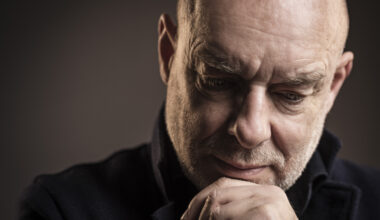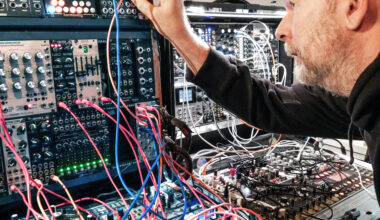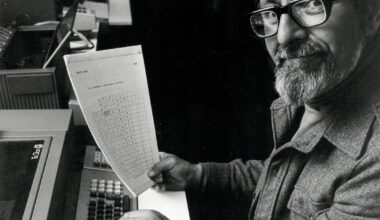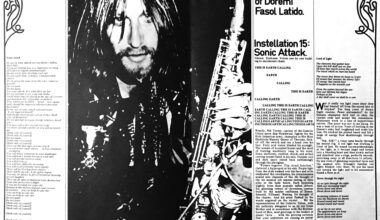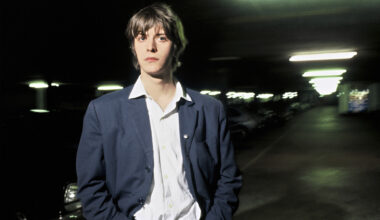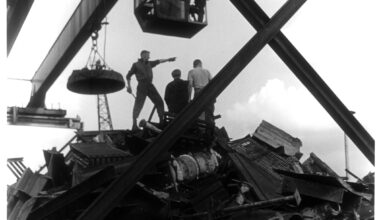When the distinguished American music trade mag hosted its Dance Music Summit in San Francisco in January 1995, little did they know that the stars of the show would be Hardkiss, an underground outfit who would inadvertently help lay the foundations of today’s EDM craze
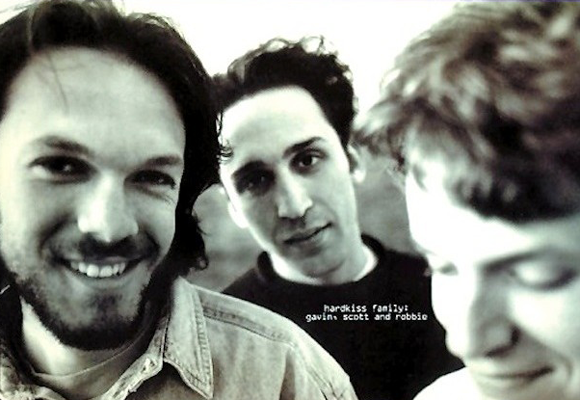
Although America revolutionised music by inventing disco in the 1970s, followed by hip hop, house and techno the next decade, it got off to a slow start trying to assimilate and adapt to the hybrid uprising that had taken place in the UK around 1988 under the name acid house. I was in the States for much of the 80s and early 90s, and witnessed rapid, seismic changes in the US dance music barometer from close quarters, but I was quite surprised at the way the country dealt with this latest electronic scene.
In 1988 America, dance music could still be boxed in alongside strains such as heavy metal, punk and “alternative”. While tens of thousands were traversing the motorways of Britain looking for that weekend’s raves, the Stateside devotees seeking having-it dance music in the underground clubs numbered no more than a few hundred in even the biggest US cities. As I saw at the small clubs and parties I managed to find in the New York area, particularly in Brooklyn, there was a strong sense of unity to be found in celebrating a kind of music that would seemingly never catch on in the mainstream. Such pockets of resistance could also be found in Detroit, Chicago, LA and San Francisco.
By the mid-90s, however, an enormous rave scene had grown in the US which inexorably planted the seeds of EDM’s corporate takeover. First, the Brits had sent over Underworld, The Chemical Brothers and The Prodigy, playing what the Americans called “electronica”. Then Madonna got hold of it for 1998’s ‘Ray Of Light’ album. Within a few years, the excruciating cod-rock posturings churned out by the David Guetta brigade was taking it to the stadiums and to Las Vegas.
As an unwitting crucible of this future movement in the early 90s, San Francisco had its own way of looking at things, which was innately descended from the open-minded climate that had spawned the original summer of love 30 years earlier. The city’s party overlords, the Hardkiss brothers, actually hailed from the East Coast, but when Scott, Gavin and Robbie were thrust into the creative cauldron of southern California, they had found a place where their imaginations and musical obsessions could run riot, no matter how far out or against the current grain.
The brothers’ initial 12-inch releases on their own Hardkiss label showed a virulently creative consciousness at play. Hardkiss were the first American outfit to break dance music constructed by electronic means out of the underground, but they were more like an ectoplasmic party tornado at Billboard’s Dance Music Summit, held in San Francisco in January 1995. Was this one of the events that laid the foundations for the coming EDM monster, as compounded at subsequent Miami Winter Music Conferences? But if this was an early attempt to legitimise the dance scene in the eyes of an industry still trying to find the next ‘Thriller’, what I observed there around the Hardkiss family was more of a celebration and an affirmation of the original principles of disco, dance music’s eternal mothership (whether it likes it or not).
At the time, I had my own electronic disco band called Secret Knowledge with blues chanteuse Wonder. We were signed to Andrew Weatherall’s Sabres Of Paradise label, but we also released tracks on Leftfield’s Hard Hands imprint as Delta Lady (which included Leftfield in the studio). We had a US deal for ‘Swamp Fever’, the new Delta Lady single, which had been championed by Billboard columnist Larry Flick and sat at number 33 in the magazine’s dance chart. It was enough to shoehorn us into the mag’s big event at the San Francisco summit, playing at a party for the Astralwerks label.
The trip got off to a good start. Off the plane, into a cab, and a driver pouring out stories about the original acid tests and Hendrix igniting Monterey. Haight Street, the 60s hippy epicentre, still carried some of that peace ’n’ love ambience, except the music in the record shops was mainly of the dance variety. Walking into the bar of the Hotel Ana, we were greeted with a hangin’ out scenario that might have caused those into their garage music to spontaneously combust: remix supremo David Morales lolled against a pillar looking like Freddie Mercury, while various Chicago house legends and divas high-fived and the dance biz elite schmoozed.
Then in strolled a larger-than-life figure who, thanks to his broad grin and overly friendly demeanour, immediately stood out. Derrick Carter is one of the true giants of Chicago house music, inventing the warped and funky “boompty” style as heard via his Blue Cucharacha, Doghouse and Classic labels. He was already renowned for epic DJ sets and spectacular partying exploits. We hit it off immediately as Derrick was far from the then usual fixed-smile career boy sizing me up to see if I’d be useful. He lived this music and actually drank alcohol, which was a novelty in these circles back then. It made perfect sense that he was there with the Hardkiss posse.
A few hours later, Hardkiss were DJing at a party in a small Italian restaurant for Traci Lords, the former porn star, who Wonder had befriended when the pair worked on a song that had appeared in the ‘Mortal Kombat’ movie and become a hit in the US. Traci had visited Wonder and I in the studio and was very pleasant. The restaurant was packed with liggers and droolers jostling to have their photos taken with Miss Lords, but my focus was on Hardkiss. At a time when many DJs, particularly the conservative garage mob, were restricted to a 120 bpm plod and watered down gospel vocals, Scott, Gavin and Robbie straddled a mind-blowing range of musical styles with the dancefloor uppermost in mind. They were a revelation that evening and, in many ways, showed the American music industry the next century.
Once Derrick Carter arrived, a riotous night got under way, with San Fran’s psychedelic tradition upheld in fine style. We ended up at a Deconstruction Records bash, but something wasn’t right. The Dust Brothers (soon to be The Chemical Brothers) were playing live but they didn’t seem to be inspiring the type of crazed wall-scaling they did back home, while Justin Robertson, one of the UK’s finest DJs, was frustrated because lots of people split after the band had been on. Someone had also nicked Justin’s beer stash. Then the management raided our balcony vantage point and confiscated ours. Apparently the police were clamping down. So it was back to the hotel, Justin on a downer that his US debut had been prematurely curtailed, but from here on in it was utter carnage and I finally staggered out at around noon – and Wonder and I had our own US debut to contend with that evening!
The Astralwerks label night was at a place called the Gardening Club, where there were various visually-boosted rooms for disco, house and chill-out. Considering there was stiff competition in the city with other Billboard events, we managed to draw a respectable crowd. We were playing the main room and I was DJing before we went on. I was nervous but my set of acid techno, including tracks like Josh Wink’s ‘Don’t Laugh’, went down fine. After about 90 minutes, Wonder took the stage, by which time the joint was rocking. Now I could finally relax and, after the venue closed at around six the following morning, we joined the Hardkiss contingent in a car making its way to a house party getting underway across town.
The host, a kindly gent in his 60s, was apparently at the forefront of the San Francisco gay scene in the 1970s and his lovely old house – all wood panelling, antiques and stained glass – had been a focal point. Many who’d attended his gatherings in those days had been claimed by AIDs, but tonight the doors were open to a discreet few who’d heard the word. The Hardkiss crew were welcomed with open arms and the whole affair was a cut above, with guests wiping the furniture after minor spillages and emptying the ashtrays halfway through the proceedings. Two rooms were decked out for chilling and chatting as huge TVs blasted out psychedelic images, while in the kitchen a nun with a beard was serving until the next evening.
The large conservatory/dining room was designated for dancing. During the following 12 hours, the DJ roster included the Hardkiss squad, the then world famous DJ Keoki, and Mr Derrick Carter, who was absolutely jaw-dropping in serious disco mode. I’ve never seen anyone mix like that. At one point, he made a flexi-disc of Diana Ross’ ‘Upside Down’ last for 20 peak-filled minutes. Finally, a chill-out specialist called Wolf took things down to a beautiful close with a slow-motion symphony, after which we repaired to Scott Hardkiss’ apartment for more activities, ending one of the most perfect nights and days (and nights) I can remember.
Sadly, Scott is no longer with us. We lost his amazing talent and vision in March 2013, but thankfully Gavin and Robbie Hardkiss have returned to homage their rich past in loving memory of their fallen brother, while once again looking at future possibilities. And with Hardkiss leading a pocket of underground resistance once again, the world of proper dance music can only be a better place.
